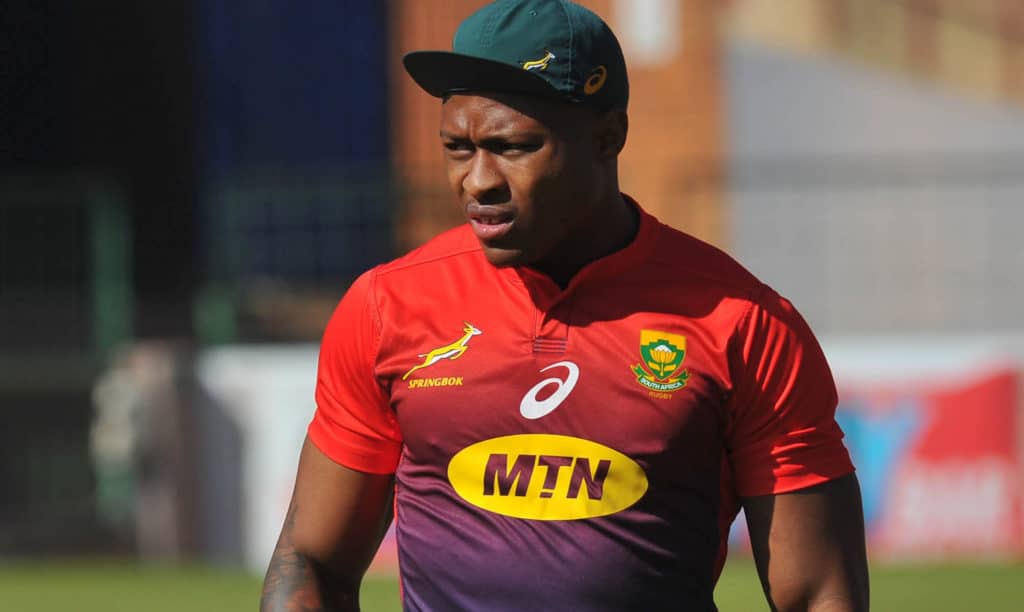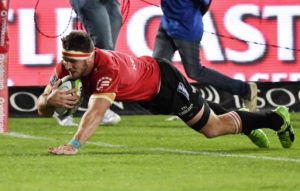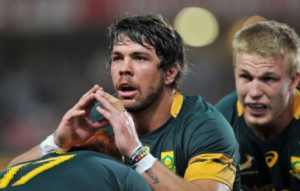Springbok assistant coach Matt Proudfoot hopes that South African rugby will be associated with performances on the pitch rather than the recent doping-related suspensions. JON CARDINELLI in Tokyo reports.
Earlier this month, Aphiwe Dyantyi was formally charged for a doping offence. The Lions and Springbok wing could face a potential four-year ban after both his A and B urine samples tested positive for multiple anabolic steroids and metabolites.
The incident came as a blow to the Boks on the eve of their World Cup campaign in Japan. It also brought the issue of doping in rugby, and particularly in South African rugby, back into the spotlight.
At a media conference in Tokyo on Tuesday, Proudfoot was asked to comment on an issue that affects junior and senior players alike.
‘I’m a forwards coach, mate. That’s something for the administrators to answer. I don’t have the information to answer that,’ Proudfoot said.
An Irish journalist asked if Proudfoot – and by extension the Boks – were worried that the recent doping-related incidents would tarnish the image of South African rugby.
‘I think that the image of South African rugby is on the field,’ said Proudfoot. ‘We’re a competitive nation. If you look at our Sevens side, the juniors, the Women’s team, and the Boks … that’s the image of South African rugby that needs to be attained.
‘Doping in sport – and not just in rugby – needs to be continuously addressed worldwide,’ he added. ‘To talk about it from the assistant coach position is not right, though.’
Proudfoot went on to explain that South African players involved at the elite level were subject to regular testing.
‘It happens weekly. The players are tested on most off-days. Probably six to eight players will be tested on an off-day basis prior to every one of our Bok camps, and right the way through the Rugby Championship.
‘Testing is the only viable mechanism to ensure a clean sport.’





